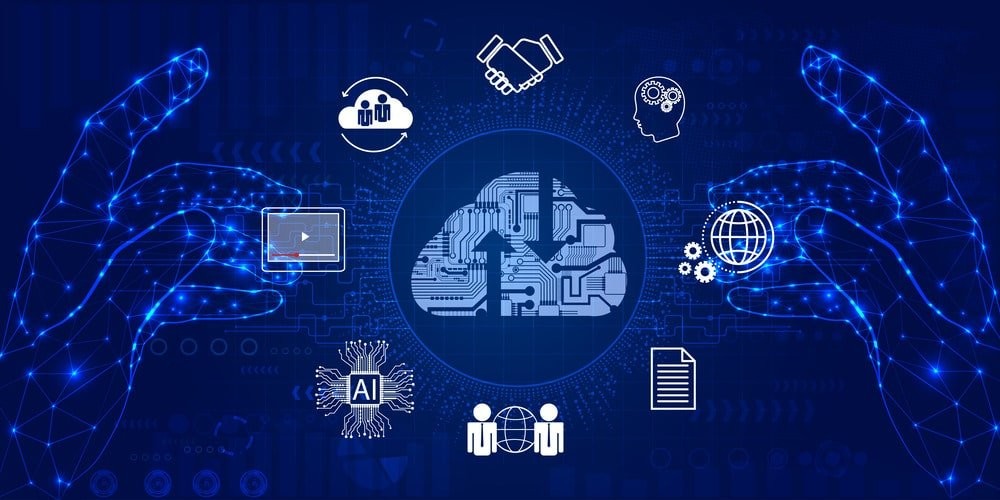The Future of Corporate IT Infrastructure Operations with AIOps
Introduction
The corporate IT sector is recognizing the potential of AlOps in managing on-prem & cloud-based IT
infrastructure. In a simple word, AlOps help you identify, analyze, prioritize, optimize & remediate vulnerability & failures in the IT Infrastructure.
This blog will try to pinpoint some of the best opportunities of AlOps & consider the tools that could help establish the frontiers of corporate innovation
The Unmatched Benefits of AIOps for IT Infrastructure

Advanced Surveillance & Crisis Control AIOps uses advanced analytics to predict and address potential IT issues before they impact the business. It automates initial responses to everyday incidents, speeding up resolution times and improving overall efficiency.
Utilization of Data With predictive data modeling feature, it helps in decision-making, planning, historical representation & identify unusual behaviors, system failures & preventive measures of these operational frameworks which is far better than other operation strategies.
Budget Optimization Jobs which do not need human intervention will be automated and will be carried out at minimum cost levels by addressing causes and risks which are shown by achieving tolerable loss of considerable outages in monetary terms.
Enhanced Security Persists in identifying and reacting to a threat in a timely manner, which in turn helps our corporate network defenses.
Scalability in AIOps allows IT resources to grow or shrink on their own due to need ensuring efficient management capabilities of different workloads. An organization should be flexible enough to rapidly switch to new technologies, as well as business requirements, while not relegating the IT infrastructure being used to embrace these changes.
The Future Prospects of AIOps: A Glimpse into Tomorrow

With both on-premises and cloud-based AIOps tools, data can be deployed quickly, reducing costs, improving efficiency, and allowing each department to work with data tailored to their needs. Natural language processing (NLP) will facilitate smoother machine-human interactions, making IT systems management and support easier.
AIOps aims to unify IT management tools into a single platform, offering a comprehensive view of the IT infrastructure. This approach ensures better interdepartmental communication and aligns IT operations with overall business goals.
New AI management tools will prioritize transparency, accountability, and fair practices in information system operations. AIOps will also support energy-efficient operations, reducing environmental impact. Privacy-preserving solutions will enable AI models to process encrypted data without the need for decryption, ensuring data security.
Blockchain technology will afford the optimal security within AIOps by allowing secure and verifiable transactions, improving control over the IT service and reducing the risk of downtime.
Essential Tools for AIOps in Corporate IT Infrastructures

Monitoring tools like Rakuten SixthSense, Dynatrace, Splunk ITSI, Datadog & HPE-OpsRamp, which AI-based provide insights, predictive analytics, real-time performance monitoring, log management, root cause analysis, and automations with proactive resolutions.
Backup operations tools like Rubrik, Veeam, and Cohesity fully automate backup, recovery, and data management tasks, improve backup performance, identify failure causes, and ensure data integrity through efficient backup and restore management.
Active Directory can be managed effectively using tools like ManageEngine ADAudit Plus, Quest Active Administrator, and SolarWinds Access Rights Manager, which allow for monitoring, auditing, and resolving permission issues.
For ITSM like Jira Service Management, Atlassian Opsgenie, Moogsoft & BigPanda provides incident management, alerting & event correlation in a great way.
Storage devices like NetApp, Pure Storage, Dell EMC can benefit from tools like NetApp ONTAP AI, HPE InfoSight & Pure Storage Pure1 for storage performance, capacity optimization, monitoring & predictive analytics. Network Devices can be managed effectively using HPE-OpsRamp, Cisco DNA Center & Juniper Mist AI which offers AI-driven insights, automation, optimizes network performance & user experiences.
Conclusion
While AIOps might be considered a modern buzzword, it holds the potential to transform the current state of corporate IT by effectively integrating AIOps tools. This leads to faster improvements and a greater impact on business operations, allowing companies to adapt and excel more swiftly than with traditional approaches. AIOps is guiding IT infrastructure to reach new levels of performance and efficiency.

Vinay Puranik | RIEPL
October 22, 2024

